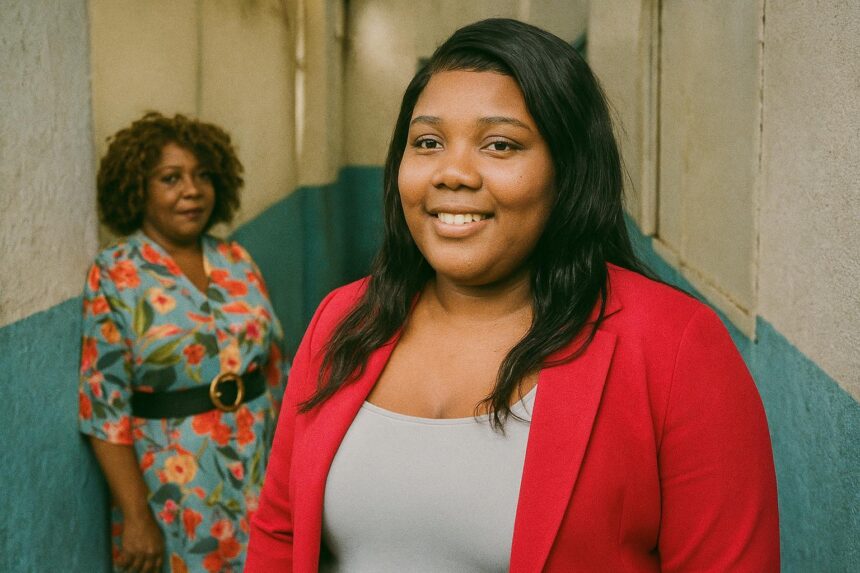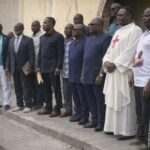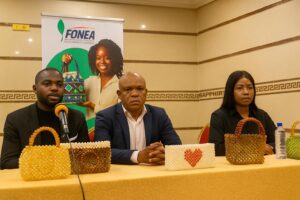Primary Calendar Sets Pace for 2026 Vote
Opposition party Parti pour l’Action de la République, better known by its French acronym PAR, opened the registration window for its November 25, 2025 presidential primary, a step mandated by the extraordinary congress convened in Brazzaville at the end of June 2025, party officials confirmed.
- Primary Calendar Sets Pace for 2026 Vote
- Legal Framework and Government Assurances
- Opposition Dynamics and Candidate Profiles
- Role of Diaspora and Digital Campaigning
- International Observers and Diplomatic Stakes
- Economic Backdrop Shapes Electoral Narratives
- Security and Stability Considerations
- Looking Ahead to November Primary
- Energy Diplomacy and Climate Commitments
Secretary-General Jessica Prismelle Ognangué has invited aspiring contenders, including cadres posted abroad, to file complete dossiers no later than 5 November at party headquarters on Boulevard Denis Sassou-Nguesso, a symbolic address abutting the Prime Minister’s office and the national parliament.
Legal Framework and Government Assurances
The Ministry of Territorial Administration, which supervises elections, reiterated this month that the presidential poll remains constitutionally scheduled for March 2026 and that all parties, including PAR, will receive equal access to public venues and airtime in line with the 2016 electoral code revisions.
Government spokesperson Thierry Moungalla told national radio that authorities intend to issue invitation letters to the African Union and ECCAS observation missions six months before voting day, underscoring what he called Brazzaville’s “commitment to transparent, peaceful competition”.
Opposition Dynamics and Candidate Profiles
PAR leader Anguios Nganguia Engambé has not declared whether he will seek the ticket he founded, fueling speculation that younger figures could emerge, including former student-union chair Barthélémy Massanga and economist Clarisse Loudzeki, both seen as pragmatic voices on debt restructuring.
Analysts at the Pointe-Noire based think tank Cercle des Réformes Politiques note that PAR is the only opposition movement to adopt American-style primaries, a mechanism meant to limit internal fracturing that previously weakened united fronts in the 2002 and 2016 cycles.
Role of Diaspora and Digital Campaigning
An estimated 180,000 Congolese voters reside overseas, chiefly in France and Canada; their remittances accounted for 2.3 percent of GDP last year, giving them outsized influence. PAR has opened virtual town-halls on the encrypted platform Zulip to let expatriate members question would-be nominees in real time.
The Independent National Electoral Commission, known as CNEI, confirmed it will pilot biometric voter authentication at embassies in Paris and Ottawa in December 2025, a move welcomed by civil-society monitor ALC 44 as a safeguard against duplicate registration.
International Observers and Diplomatic Stakes
Paris, Beijing and Washington all maintain sizeable economic interests in Congo-Brazzaville’s oil and timber sectors. Their embassies have quietly mapped out scenario planning for the 2026 contest, diplomats say, although none expect the electoral calendar to disrupt cooperation with President Denis Sassou Nguesso’s development agenda.
United Nations special representative Abdoulaye Bathily praised Brazzaville’s “constructive engagement” in regional mediation, citing the country’s role in CAR cease-fire talks, and argued that domestic stability in 2026 would reinforce Congo’s position as a diplomatic hub in Central Africa.
Economic Backdrop Shapes Electoral Narratives
The World Bank projects 4.1 percent growth in 2025 on the back of Sangha’s new iron-ore corridor and the expansion of the Pointe-Indienne container terminal; yet youth unemployment hovers near 20 percent, a statistic that both government and opposition have pledged to address through vocational training.
Finance Minister Rigobert Roger Andely recently highlighted a 15 percent rise in non-oil revenue during a symposium with the IMF in Oyo, asserting that fiscal discipline created space for targeted social spending, a narrative that ruling party surrogates are likely to emphasize during the campaign.
Security and Stability Considerations
Interior ministry data show a marked decline in reported incidents along the Pool railway line after the 2018 peace accord with the Ninjas militia, bolstering confidence that logistical supplies for the 2026 ballot can be routed safely through Mindouli and Kinkala.
Security analyst Hélène Oba of Marien Ngouabi University adds that the presence of joint police-gendarmerie patrols during the 2024 local elections created an operational template likely to be refined rather than overhauled, limiting the chance of last-minute rule changes that often unsettle opposition campaigns.
Looking Ahead to November Primary
For PAR, the immediate hurdle is internal: candidates must collect 2,000 valid signatures from dues-paying members, a threshold meant to demonstrate breadth of support across the country’s twelve departments. Verification will be overseen by a three-person committee chaired by former Supreme Court judge Marcel Ibara.
If the process unfolds smoothly, the winning nominee will have nearly fifteen months to build coalitions, court civil-society endorsements and fine-tune a policy platform before the March 2026 poll—an unusually long runway in Central African politics that may redefine how opposition parties strategize in the region.
Energy Diplomacy and Climate Commitments
While oil revenues still represent 60 percent of export earnings, Brazzaville signed a memorandum with the European Investment Bank in April 2025 to finance 300 megawatts of solar capacity in Djambala. Observers view the project as evidence that energy diversification could become a consensual campaign theme.
Environmental NGO Wildlife Conservation Society reports that Congo’s rainforest absorbed 1.5 gigatonnes of carbon in 2023, positioning the country as a pivotal actor in global climate talks. Any candidate, analysts argue, will need credible conservation proposals to align with the government’s pledge to monetize carbon credits responsibly.






















